LEFRHUM 20MG TABLET
MRP ₹240
(Inclusive of all Taxes)
₹36.0 Cashback (15%)
Provide Delivery Location
Online payment accepted
 Prescription drug
Prescription drugWhats That
Composition :
Manufacturer/Marketer :
Consume Type :
Expires on or after :
Return Policy :
About LEFRHUM 20MG TABLET
LEFRHUM 20MG TABLET belongs to the group of medicines called 'anti-rheumatic agents' used to relieve symptoms of rheumatoid arthritis and psoriatic arthritis. Rheumatoid arthritis is an auto-immune disease (the body's immune system attacks its tissue) which leads to joint pain and damage. Psoriatic arthritis is a kind of inflammatory arthritis which occurs in patients with psoriasis (red patches of skin with silvery scales).
LEFRHUM 20MG TABLET contains 'Leflunomide' an isoxazole immunomodulatory agent which works by blocking the formation of genetic material, i.e. DNA required for survival of replicating (dividing) cells of the immune system. As a result, it suppresses the activated immune system to reduce pain, inflammation and swelling.
Take LEFRHUM 20MG TABLET at the same time every day as prescribed by your doctor. In some cases, LEFRHUM 20MG TABLET may cause common side-effects such as diarrhoea, nausea, stomach pain, indigestion, rash, and hair loss. Most of these side effects do not require medical attention and will resolve gradually over time. However, you are advised to talk to your doctor if you experience these side effects persistently.
Do not take LEFRHUM 20MG TABLET if you are pregnant or planning for pregnancy as LEFRHUM 20MG TABLET may cause serious congenital disabilities. LEFRHUM 20MG TABLET should not be taken by breastfeeding mothers as it passes into breast milk. LEFRHUM 20MG TABLET may cause dizziness, so drive with caution. Avoid consuming alcohol along with LEFRHUM 20MG TABLET as it could lead to increased dizziness and liver damage. LEFRHUM 20MG TABLET may make you more susceptible to infections; consult your doctor if you develop any signs of infections such as fever, sore throat, breathlessness, jaundice, unexplained bleeding or bruising.
Uses of LEFRHUM 20MG TABLET
Directions for Use
Key Benefits
LEFRHUM 20MG TABLET belongs to the group of medicines called anti-rheumatic agents used to relieve symptoms of rheumatoid arthritis and psoriatic arthritis. LEFRHUM 20MG TABLET is a disease-modifying antirheumatic drug (DMARDs) which inhibits an enzyme called dihydroorotate dehydrogenase and has antiproliferative activity (suppresses the cell growth). Thereby, helps in treating inflammation, redness, and swelling.
Storage
Drug Warnings
Do not take LEFRHUM 20MG TABLET if you are allergic to leflunomide, have severe liverkidney problems, low levels of protein in the blood, immune system problems, bone marrow problems, or serious infections. LEFRHUM 20MG TABLET is not recommended to be used in pregnant women, lactating mothers and people below 18 years of age. Talk to your doctor before taking LEFRHUM 20MG TABLET if you have/had serious infections like interstitial lung disease (inflammation of lungs), tuberculosis (TB), or pneumonia. LEFRHUM 20MG TABLET may cause dizziness, so drive with caution. LEFRHUM 20MG TABLET may make you more susceptible to infections; notify the doctor if you develop infections, sore throat, breathlessness, jaundice, unexplained bleeding or bruising.
Diet & Lifestyle Advise
- Physical activity helps in strengthening muscles and relieves joint stiffness. Gentle activities like 20-30minutes of walking or swimming would be helpful.
- Performing yoga may also help in improving joint flexibility and pain management.
- Maintain a healthy weight by performing regular low-strain exercises and eating healthy food.
- Get adequate sleep as resting the muscles can help in reducing inflammation and swelling.
- De-stress yourself by meditating, reading books, taking a warm bubble bath or listening to soothing music.
- Acupuncture, massage and physical therapy may also be helpful.
- Eat food rich in antioxidants such as berries, spinach, kidney beans, dark chocolate, etc.
- Foods containing flavonoids help in reducing inflammation. These include soy, berries, broccoli, grapes and green tea.
- Avoid smoking and alcohol consumption.
Side Effects of LEFRHUM 20MG TABLET
- Diarrhoea
- Nausea
- Stomach pain
- Indigestion
- Rash
- Hair loss
Habit Forming
Therapeutic Class
All Substitutes & Brand Comparisons
RX
Rheulef 20 Tablet 10's
Newgen Life Sciences Pvt Ltd
₹170
(₹15.3 per unit)
29% CHEAPERRX
Out of StockLEF 20 mg Tablet 10's
Meddox Formulations
₹170
(₹15.3 per unit)
29% CHEAPERRX
Out of StockArava 20 mg Tablet 30's
Sanofi India Ltd
₹571.1
(₹17.13 per unit)
20% CHEAPER
Author Details
We provide you with authentic, trustworthy and relevant information
FAQs
Drug-Drug Interactions Checker List
- IBUPROFEN
- NAPROXEN
- ACETAMINOPHEN
- ASPIRIN
- DULOXETINE
- PREDNISONE
- CELECOXIB
- AZATHIOPRINE
- MELOXICAM
- METHOTREXATE
- ETANERCEPT
- ADALIMUMAB
- ABATACEPT
- INFLIXIMAB
- HYDROXYCHLOROQUINE
Special Advise
Regular blood tests to monitor your liver function after starting LEFRHUM 20MG TABLET, and for every 6-8 weeks are advised.
Disease/Condition Glossary
Rheumatoid arthritis: It is an auto-immune disease (where the body's immune system attacks its tissue) which leads to joint pain and damage. Symptoms of rheumatoid arthritis include pain, inflammation of joints, difficulty in moving and swelling. Patients with rheumatoid arthritis have intense joint pain (especially knee joint) with stiffness.
Psoriatic arthritis: Psoriatic arthritis is an autoimmune disease characterized by inflammation of the skin (psoriasis) and joints (inflammatory arthritis). It mainly affects large joints in the lower extremities, distal joints of toes and fingers, back and pelvis. Symptoms include inflammation of joints, difficulty moving, swelling, patches of red, scaly skin and pain.

Have a query?
Alcohol
Safe if prescribed
You are recommended to avoid alcohol consumption while taking LEFRHUM 20MG TABLET. Alcohol intake, along with LEFRHUM 20MG TABLET, may cause liver disease.
Pregnancy
Consult your doctor
It is not recommended to take LEFRHUM 20MG TABLET while you are pregnant. LEFRHUM 20MG TABLET may cause serious birth defects.
Breast Feeding
Consult your doctor
It is not recommended to take LEFRHUM 20MG TABLET while you are breastfeeding. LEFRHUM 20MG TABLET passes into breast milk.
Driving
Safe if prescribed
LEFRHUM 20MG TABLET may cause dizziness and tiredness; do not drive or operate heavy machinery if you feel dizzy.
Liver
Consult your doctor
Please consult your doctor if you have liver impairment before taking LEFRHUM 20MG TABLET.
Kidney
Consult your doctor
Please consult your doctor if you have kidney impairment before taking LEFRHUM 20MG TABLET.
Children
Safe if prescribed
LEFRHUM 20MG TABLET is not approved for children under the age of 18 years.





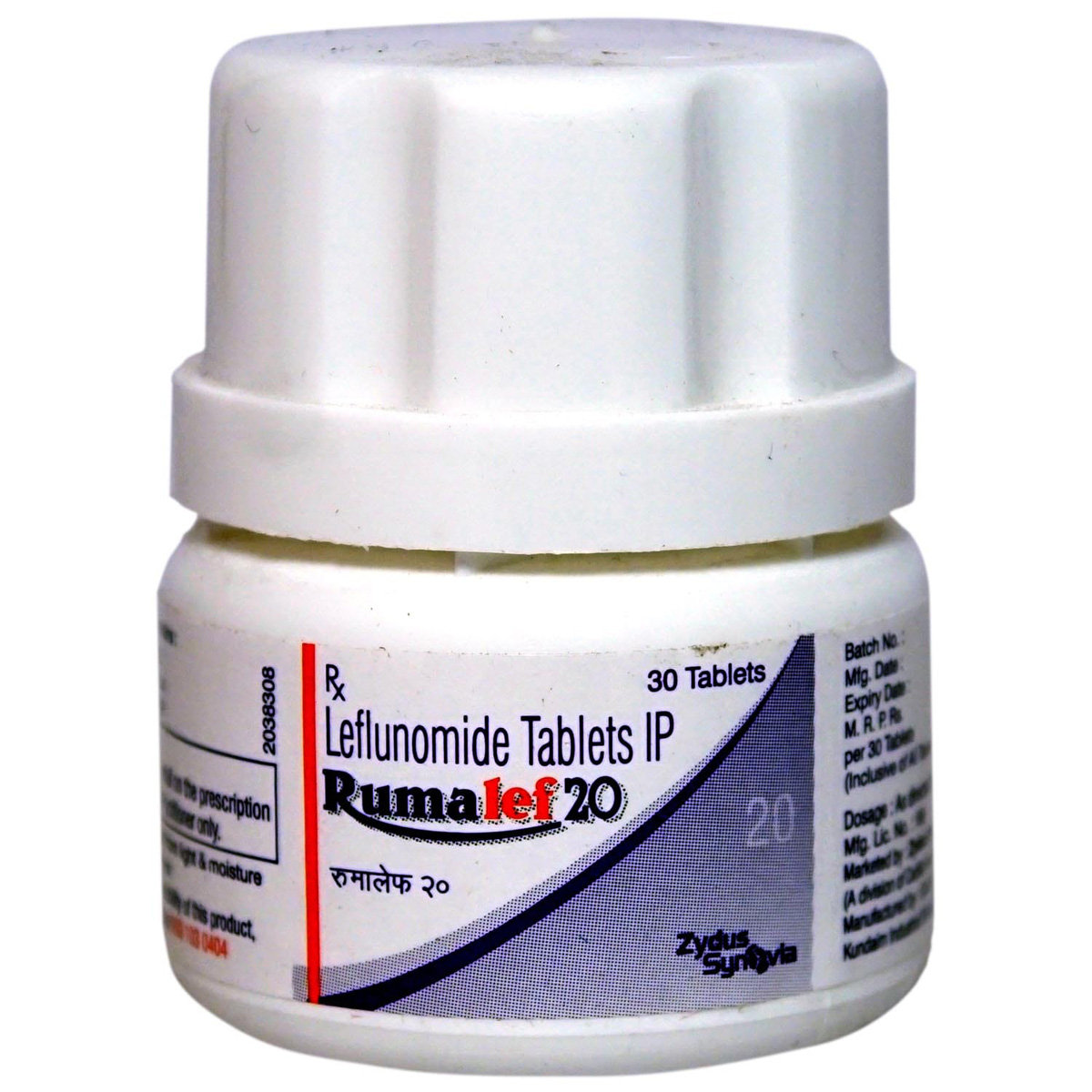

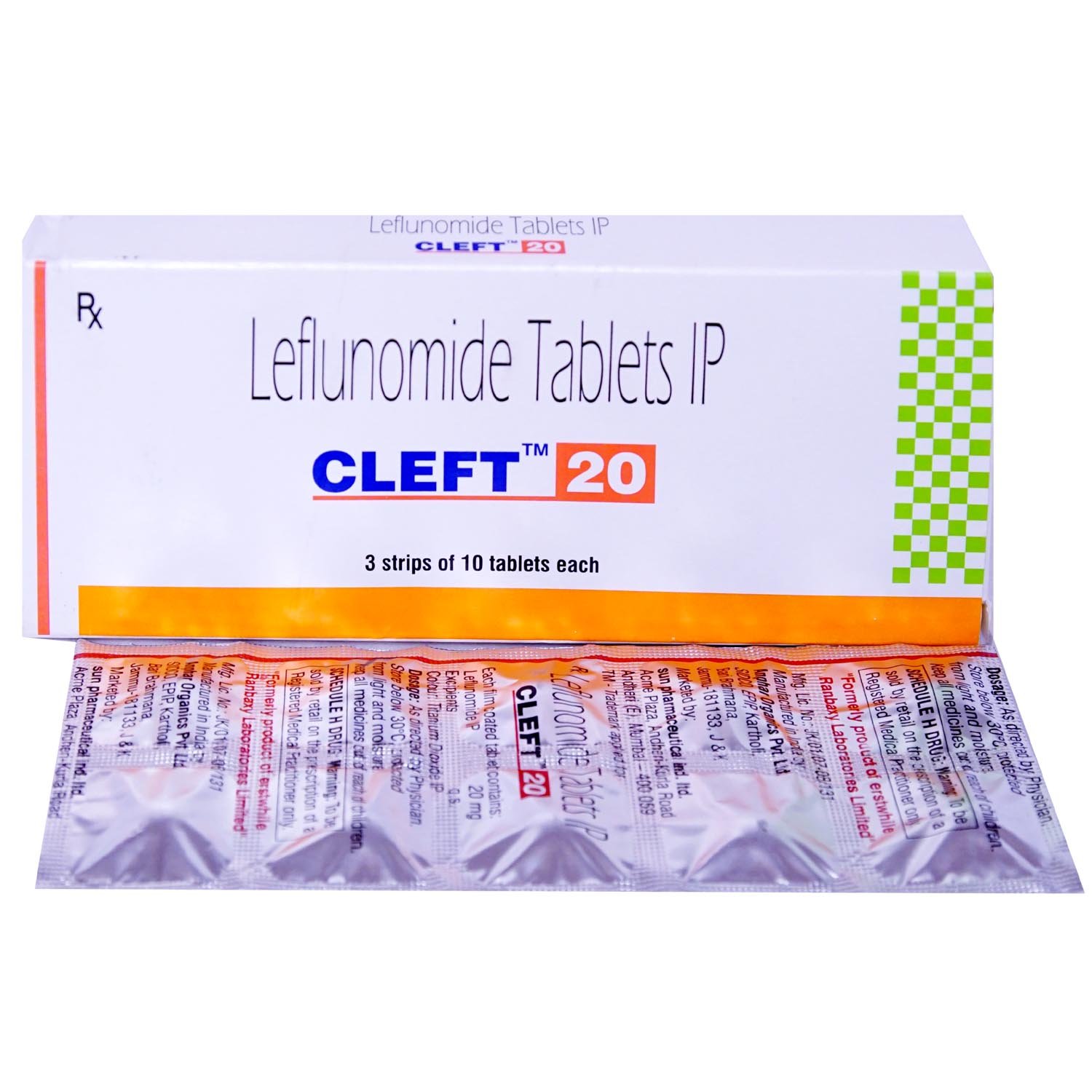
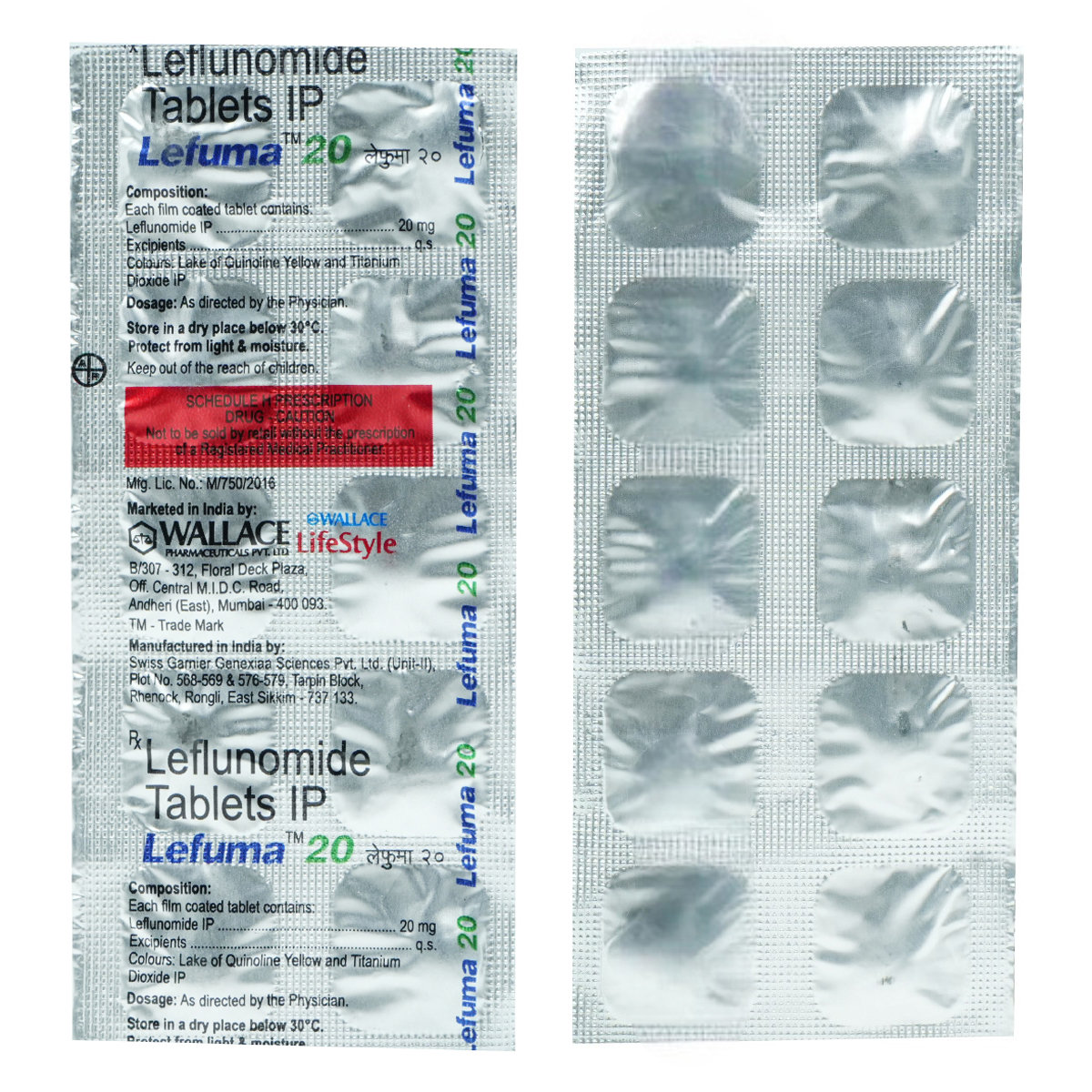
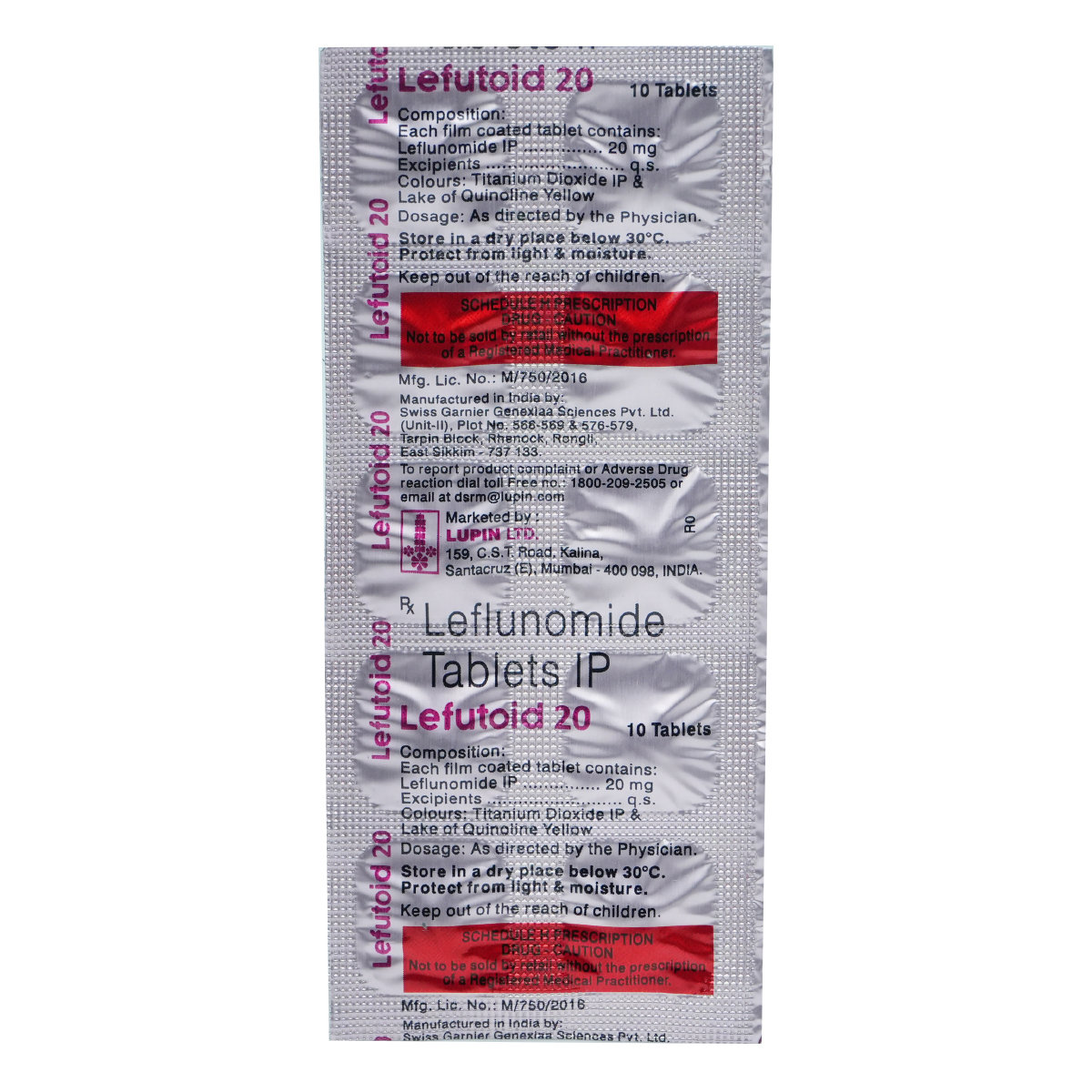
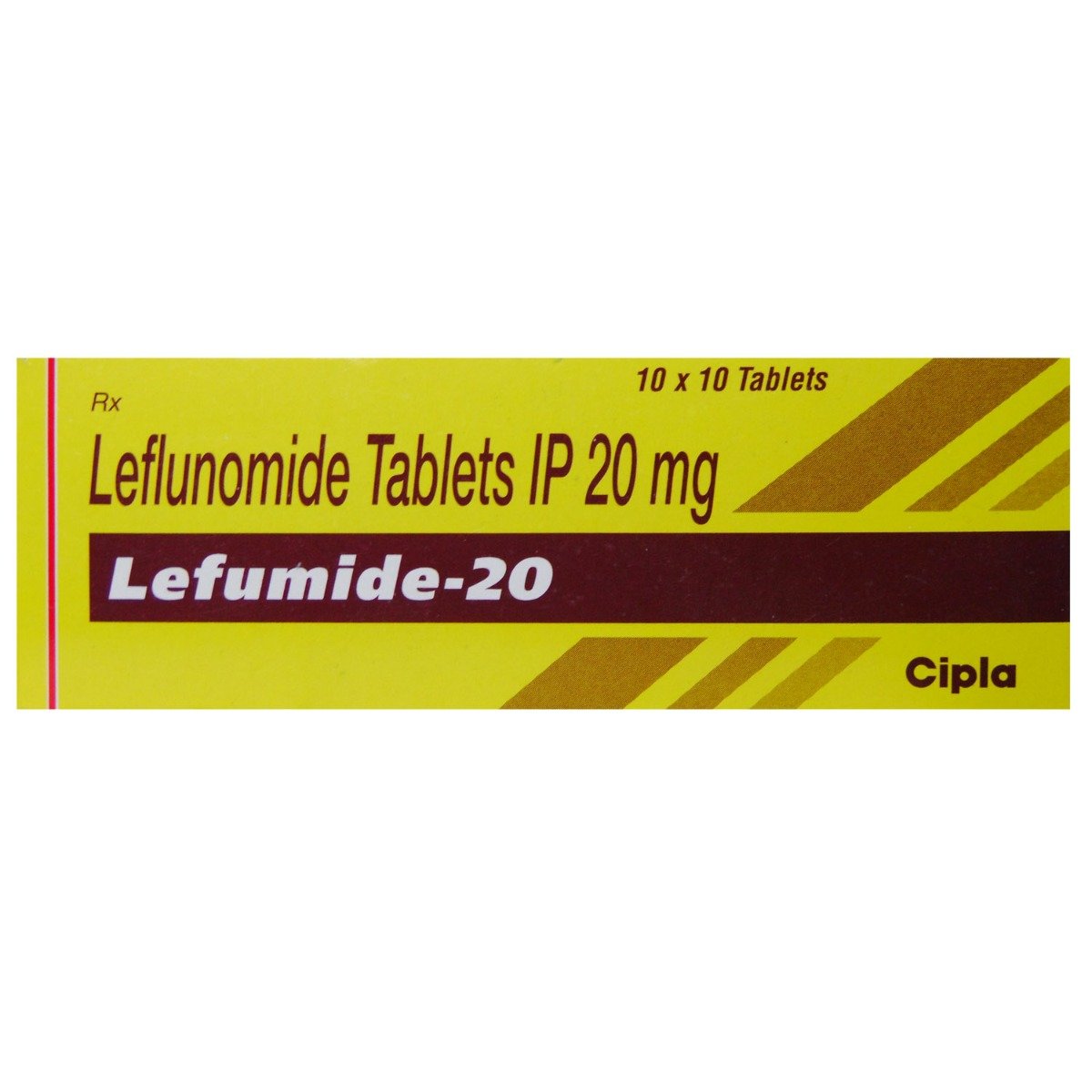

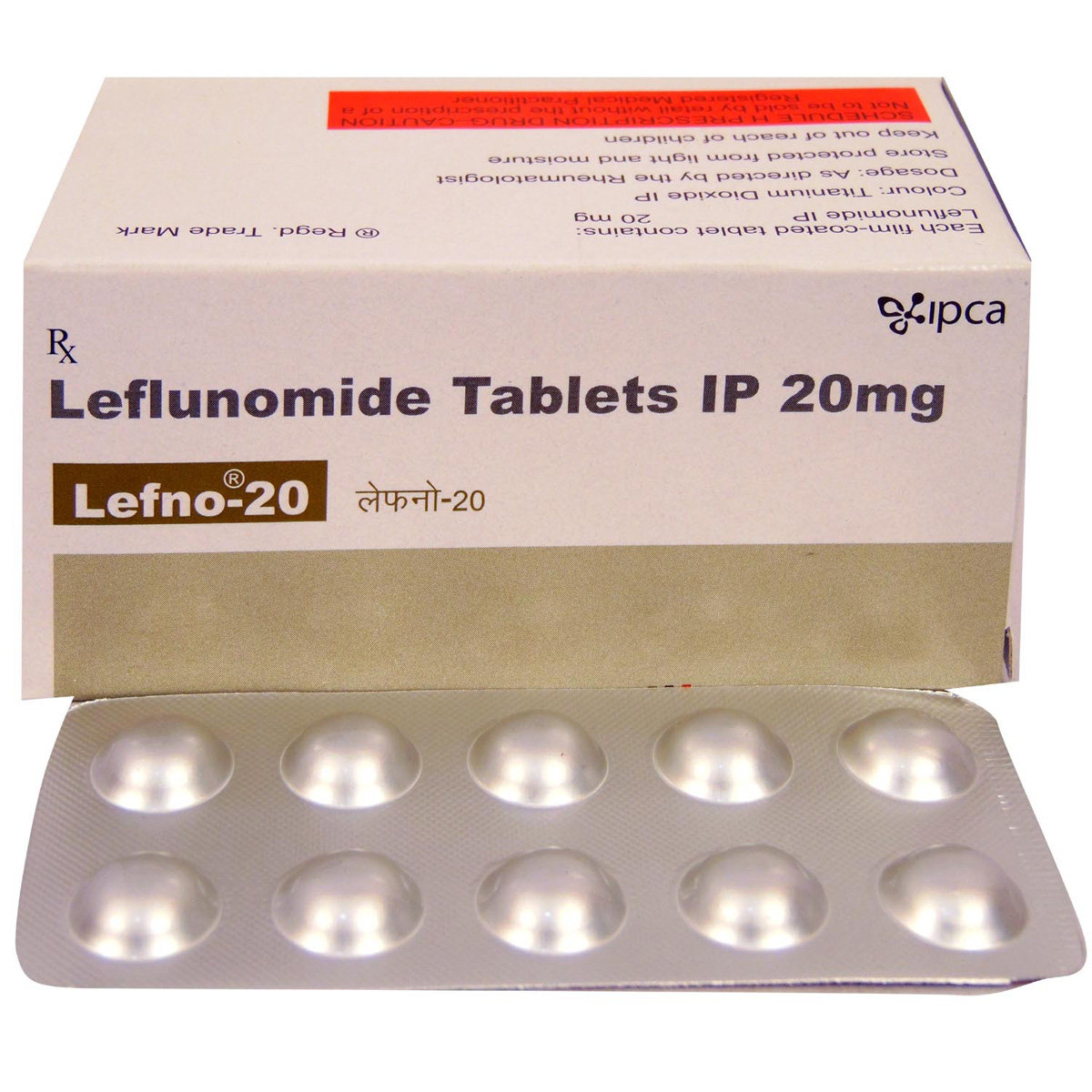


_0.jpg?tr=q-85)

